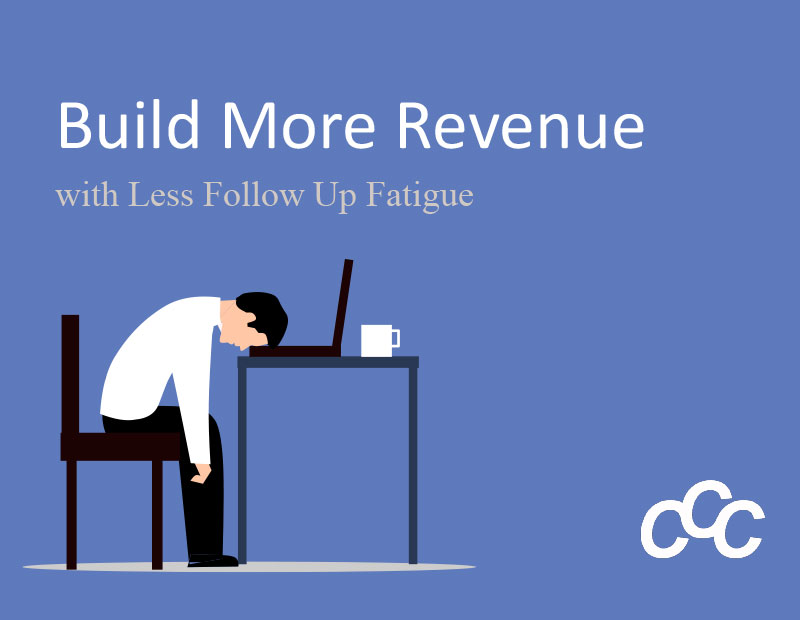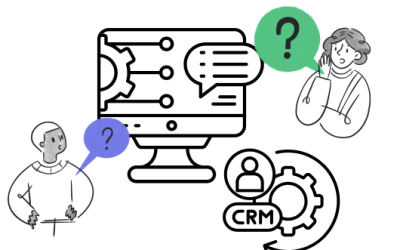Business owners and sales managers ask this question frequently. What are the symptoms that indicate my team needs a CRM?
Many sales departments operate successfully without a CRM. Good salespeople make sales. The CRM doesn’t make sales and it doesn’t make bad salespeople into good salespeople.
Impact of Company Size
Many businesses have existed without the benefits of a CRM. Solopreneurs, in particular, know their prospects and clients, and retain the key info in their heads.
A business of 3 to 10 employees has a new challenge – Communications! Communications and coordination lead to CASH. With 5 employees, the owner splits its time between many functions – managing sales reps and producing work.
As an owner, the focus is knowing what the:
- Sales pipeline looks like.
- Sales reps are doing.
As an owner, the conflict is splitting time between sales and production.
For the owner or sales manager of a company of 25 the challenges expand:
- Roles become more defined.
- The sales manager role has 5 to 7 direct reports and has a boss.
Where the owner is the sales manager, the conflict between sales and production is more acute.
For a company of 100+ employees, the need for Communication and Coordination explodes. Systems emerge to manage accounting and HR, but marketing and sales systems often lag behind. Roles change explicitly:
- The owner is no longer administering accounting and HR. It’s focus is knowing the sales pipeline, ensuring great talent and quality control, and strategy.
- The sales manager or VP feels the pressure to close more sales.
- Marketing roles have been defined.
As you scale, excellent communication and coordination are paramount! When done well, they lead to cash!
Symptoms
Many symptoms indicate that a company needs a CRM. The 2 most pressing symptoms are declines in sales and in the sales conversion ratio. Here are symptoms that often lead to the sales decline:
- Institutional memory is in the salesperson’s head or on sticky notes. Can you imagine the owner’s risk when the sales rep quits?
- Prospect and client data are maintained on sticky notes, spreadsheets, and handwritten lists.
- Proposal deadlines are missed.
- Sales reps spend the same time on all prospects.
- Sales reps spend time on manual, repetitive emails to reach out to prospects.
- Messaging fails to differentiate among contact segments.
- Sales meetings are unfocused and lack detail.
Each of these symptoms make it harder to close sales and produces follow up fatigue.
CRM Successes
If your CRM doesn’t make sales, what does it do? Here are some successes:
- For an online store, the CRM identifies single product buyers that are eligible for discounts on the purchase of a second product.
- For a wholesaler with multiple sales reps, the CRM keeps the VP of Sales current on all prospects through the sales funnel.
- For a manufacturer who sells to wholesalers and direct to consumers, the CRM segments contacts by type, by product purchased, by geography so that specific messaging can be sent to each segment.
- For an insurance agency, the CRM sends renewal notices automatically, 60, 30, and on the day of the renewal. Each notice has a link to the renewal page.
Your CRM will make the best salespeople even better as it frees you up to pursue your best leads.
See How You Can Use Your CRM to Make You the Best Salesperson Ever





